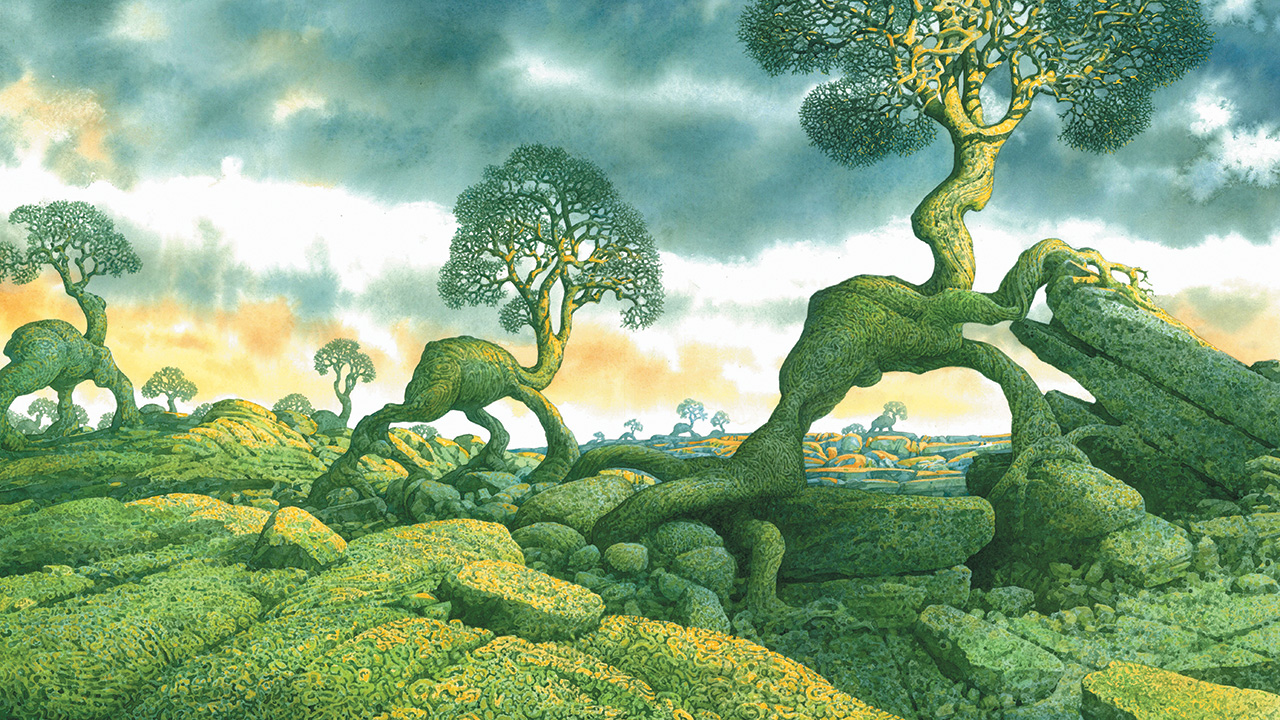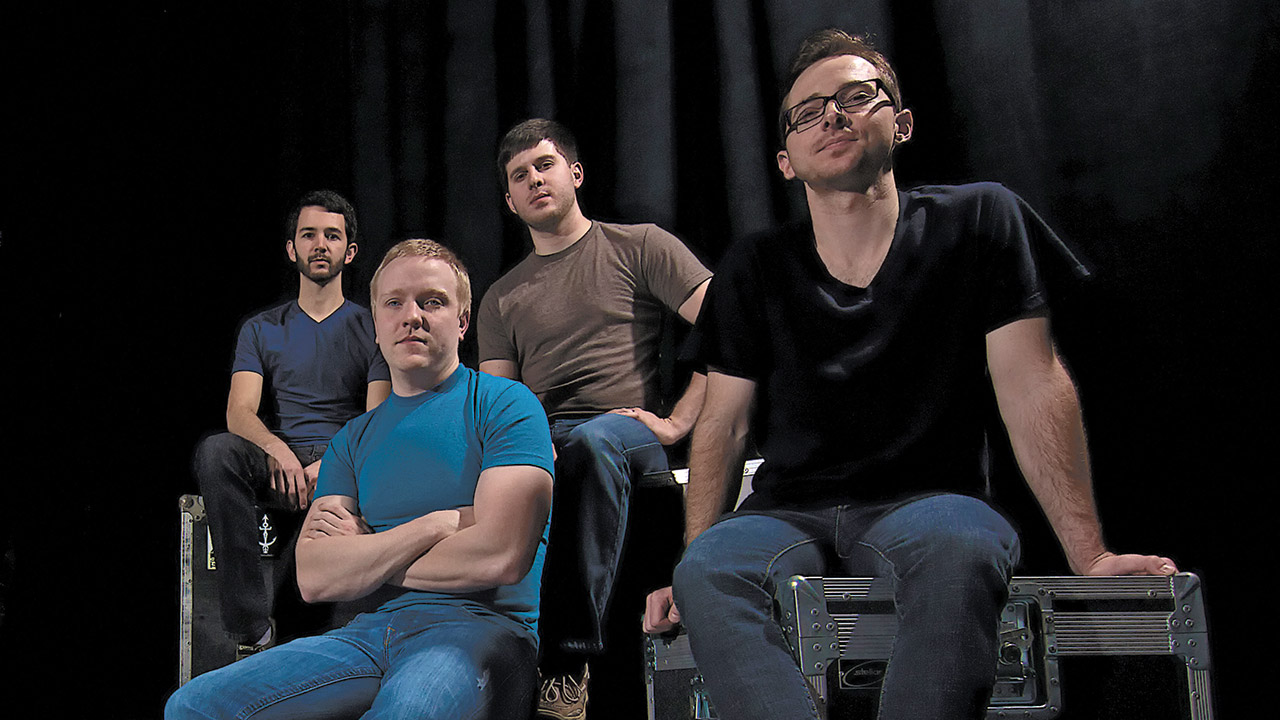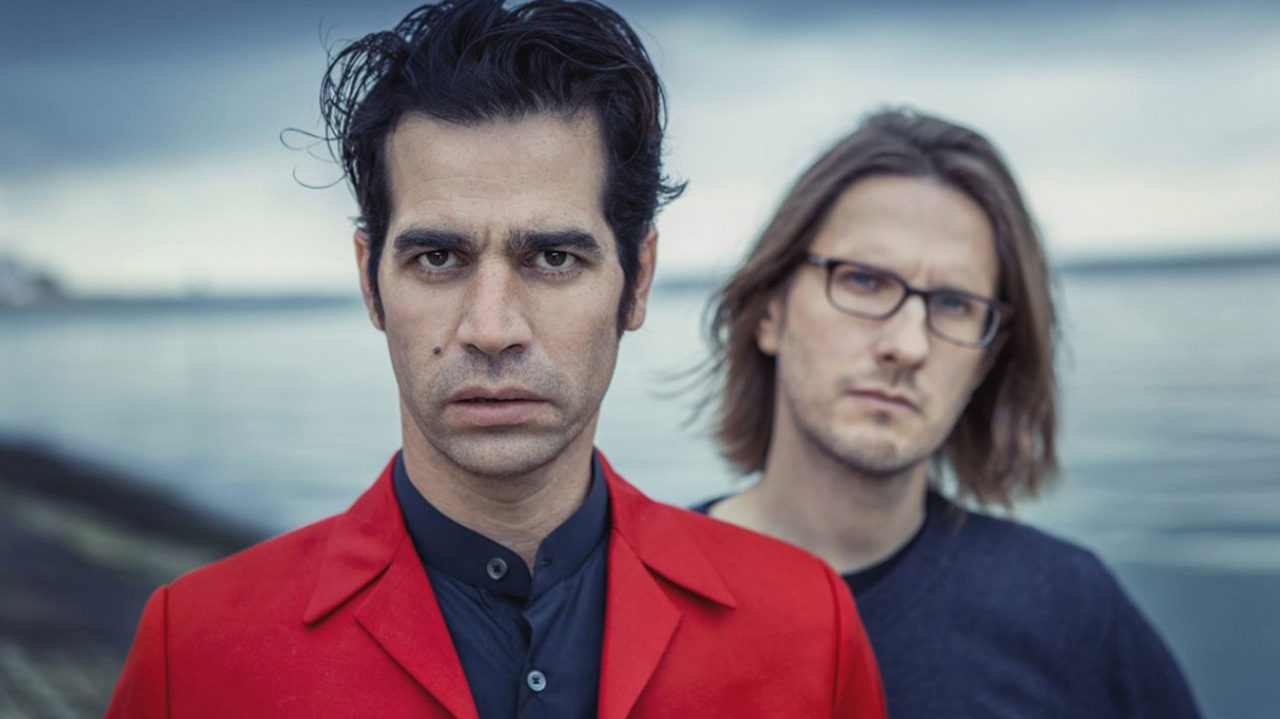The story of Scale The Summit's The Migration
With their second album, The Migration, Houstonians Scale The Summit turned their brand of kinetic instrumental prog metal all the way up to 11

Select the newsletters you’d like to receive. Then, add your email to sign up.
You are now subscribed
Your newsletter sign-up was successful
Want to add more newsletters?

Every Friday
Louder
Louder’s weekly newsletter is jam-packed with the team’s personal highlights from the last seven days, including features, breaking news, reviews and tons of juicy exclusives from the world of alternative music.

Every Friday
Classic Rock
The Classic Rock newsletter is an essential read for the discerning rock fan. Every week we bring you the news, reviews and the very best features and interviews from our extensive archive. Written by rock fans for rock fans.

Every Friday
Metal Hammer
For the last four decades Metal Hammer has been the world’s greatest metal magazine. Created by metalheads for metalheads, ‘Hammer takes you behind the scenes, closer to the action, and nearer to the bands that you love the most.

Every Friday
Prog
The Prog newsletter brings you the very best of Prog Magazine and our website, every Friday. We'll deliver you the very latest news from the Prog universe, informative features and archive material from Prog’s impressive vault.
It’s a familiar story: an ambitious young band self-release a record as complete unknowns, and gradually things fall into place with a combination of stubborn belief, hard work, and perhaps most of all, good luck. The rest you may not know however, and for Houston progressive upstarts Scale the Summit, the last few years have been an incredible ride. Boasting a true virtuoso on lead guitar in the form of frontman Chris Letchford, the band create thrilling, expansive technical prog that’s left them nigh impossible to pigeonhole and possessed of an enviably eclectic fanbase.
On their earlier records, sprawling compositions written with the aid of eight-string guitars found them aligned with the nascent djent scene, as well as earning them admirers among true luminaries of progressive rock. So it was that with only one album under their belt they found themselves opening for Dream Theater at the personal request of Mike Portnoy. Since then it’s been onward and upward, with a continual drive for self-improvement as players, composers and as a live band at the core of what they do.
“‘I want to go see them live to see if they’re human!’” laughs Chris, explaining why fans were initially drawn to their brand of kinetic instrumental prog metal. “They’re looking for mistakes,” he continues, adding that for every fluff he makes on stage he punishes himself severely, saying matter-of-factly why his standards are so high, “I used to do four-to-six hours a day of constant drilling; now... I’m doing less technical ‘ability’ stuff because I’ve reached the point where I know that whatever I need to achieve on the guitar I can just put on a metronome and drill up to that level.” While it may seem incredible – and perhaps adversarial to think in this way, Chris is adamant that these fans exist.
“Absolutely! I used to be that kind of guy – I’d hear it on the record and say ‘I want to see this performed live’.” These are their people; though they have a broad appeal, their core fanbase are “progressive metal nerds” – just like the band themselves. Predictably, their roots lie squarely in progressive rock: “Growing up, all I heard was Yes albums. You would think that by now, I’m 28, I wouldn’t really dig the stuff I’ve listened to as long as I can remember, but that’s one band I still absolutely love.” Chris is also a fan of more mainstream bands, singling out the melodic chops of Passion Pit, “people always say ‘that’s easy’, or ‘that’s simple’, and I say, ‘well try and write it then!’”

Formed when he and guitarist Travis Levrier moved to Los Angeles, the band’s style coalesced quickly; “once we finished our first song ever – Rode In On Horseback from Monument – we just decided it sounded full and complete, we never even attempted see what it would be like with vocals,” recounts Chris, “there were instrumental albums from the other virtuoso guitar players like Vai and Satriani, but no full bands. It kind of took a while to get people to believe that we could market this kind of music and get people to come to shows. It took a lot of hard work and persistence.” Chris explains at the peak of MySpace they were able to “reach out to as many people as we wanted to dedicate the time to”, a key factor in getting their name out in the early days and generating buzz around their self-release of first LP Monument.
This legacy of hard work extends to a rigorous tour schedule – for The Migration they plan on visiting Europe for the first time, then twice more on this touring cycle. Chris seems unfazed. “I think we’ve got 20 [shows] in a row with no days off,” he says of the album tour they’re about to embark on – but then, when your first tour was with Dream Theater, it must be hard to get worried afterwards, “my mind was blown. It was our first proper six-week tour with one of our idols and one of the best progressive bands of all time. It was an honour, we received standing ovations on nearly every single night of the tour as the opener, being totally unknown, being totally instrumental... our career really blossomed from there.”
Where previous album The Collective was a disparate collection of pieces, The Migration is a more cohesive set of tracks, with greater control of dynamics at its core. Chris bemoans that “starting out we didn’t think about that aspect, we were just like ‘technical, technical, technical’,” one day realising as they grew as composers that “this is what’s always been missing from our music – dynamics.” Thus on The Migration there’s less of a reliance on introducing extra layers or guitars; instead, a subtle use of registers and variances in pitch is employed to flesh out the textures of their vivid paintings. Both uplifting and aggressive, its greatest achievement is “being able to feel and hear the energy on the recording”, the organic energy that comes from capturing the perfect snapshot of a band at a moment in time. “I’m just excited because this is the first record that I’m actually satisfied with out of all three of our others... I’ll be interested to see what people think as it’s different to what we’ve done in the past,” says Chris, praising the production work of Jamie King; “he alone was the person who understood what we meant by ‘organic’ and ‘natural’”.
Sign up below to get the latest from Prog, plus exclusive special offers, direct to your inbox!
So what’s the outlook for Scale The Summit? Chris pauses to reflect before replying.
“Some bands have one or two records; we’re about to release a fourth with no sight of us disbanding or moving on. I’m like ‘man, I’ve got to leave behind something before I die.’
“Touring can be rough, but when I get home I think back about certain shows and the kids going nuts or coming up to me and saying ‘I was having the worst day, then I put on your record and it cheered me right up’, it’s so rewarding, seeing that our music changes peoples’ lives, hopefully for the better.”
This article originally appeared in issue 36 of Prog Magazine.
